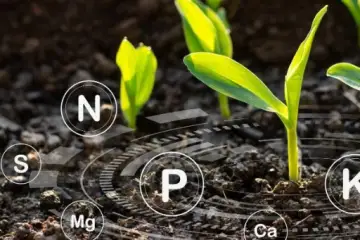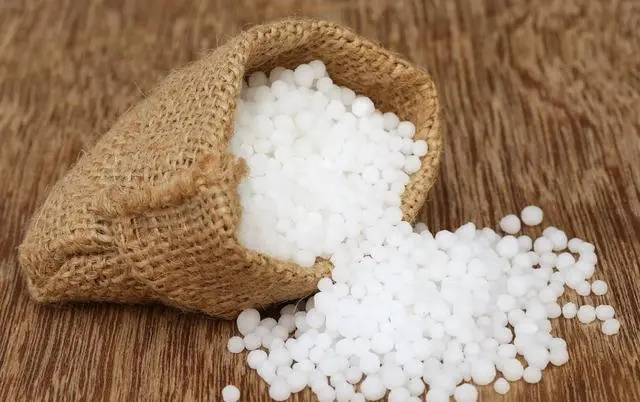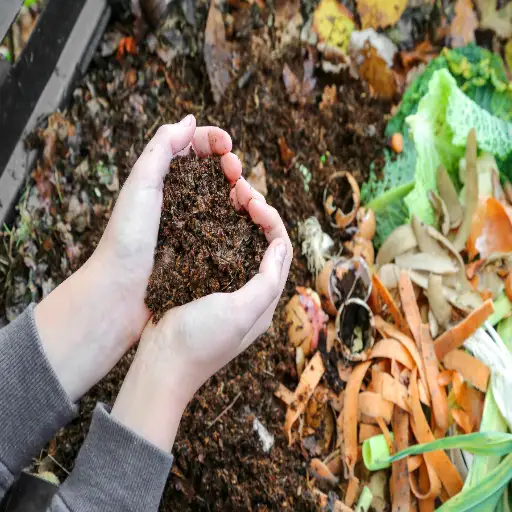Introduction: Significance of Organic Fertilization for Carrots
More and more gardeners are turning to organic fertilizers to enhance the yields and quality of their carrot crops in a sustainable way. Natural composition is perhaps the most important advantage of organic fertilizers over synthetic ones, which promotes soil health and reduces chemical runoff.
There are several crucial factors that must be considered when selecting an appropriate organic fertilizer for carrots. Soil structure and microbial life are key determinants; hence, the right fertilizer will improve both plants as well as soil. The nutrient release rate from the fertilizer should also be considered since it is supposed to match with growth rate of carrots for better development. It is also necessary to look into the environmental impact of a certain fertilizer in order to make sure that there are sustainable practices on farm land without affecting surrounding ecosystem.
“Choosing an organic fertilizer that suits its needs for specific growing conditions is essential when trying to achieve high yields without disturbing natural balance within the garden”, stressed Dr. Helen Carter, professor of agricultural sciences. This method ensures that they grow in fertile ground capable of supporting their growth while maintaining healthy soil condition for future planting seasons.
Understanding Nutrient Requirements for Carrots
Carrots require certain nutrients that determine how well they grow, taste and retain their nutritional quality. Naturally, these root vegetables need nitrogen, phosphorous, potassium among other contents abbreviated as N-P-K required in root development. Nitrogen boosts leaf formation which supports root growth eventually whereas phosphorus enhances root system development making it more crucial specifically to carrots. Furthermore, potassium improves plant health and increases water absorption or uptake by plants.
Apart from macronutrients like these ones mentioned above, micronutrients such as boron are also beneficial in carrots production process. This usually helps them form cell walls and hence roots develop properly with this mineral being deficient leading to unattractive or stunted roots mass at harvesting time.Balanced supply of these nutrients greatly influences how fast carrots grow, their taste, and nutrient content.
“Balanced nutrition during carrot growth stages maximizes the production, flavor and nutritional value of the harvest”, advises Dr. Emily Forrest, a soil and plant nutrition specialist. For instance, organic fertilizers that release nutrients slowly provide continuous supply to support steady growth.
Choosing an organic fertilizer for carrots that meets these nutrient requirements without overloading the soil with unnecessary chemicals is crucial. Organic options tend to provide a balanced nutrient release, which aligns well with the natural growth cycles of carrots, thus preventing the risk of nutrient leaching and promoting environmentally sustainable gardening practices.

Organic Fertilizers Suitable for Carrots
For optimal growth, it is important to select the right kind of organic fertilizer for carrots. There are several types of organic fertilizers that can be very effective in carrot cultivation with each having its own merits:
1. Composted Manure: Nutrients and Organic matter is obtained from composted manure such as cows, horses and chickens and this slowly releases nitrogen which ensures health leaves of carrot tops leading to overall root development and enhancing soil structure beneficial to root expansion.
2. Green Manure: This involves growing plants like alfalfa or clover as green manure before plowing them into the ground. It adds organic matter and nutrients directly to the soil hence it is an excellent means of fixing nitrogen from the air that is beneficial to carrots.
3. Commercially Prepared Organic Blends: These blends are specifically formulated for vegetable garden fertility, including carrots. A well-balanced mix of nitrogen, phosphorus, potassium and essential micronutrients like boron required for optimum carrot growth are often found in these blends.
4. Bone Meal: Bone meal is a good source of phosphorous which promotes vigorous root development in case it’s rich in it organically. Additionally, calcium which helps in strengthening plant cell structure hence healthier plant growth is also provided by bone meal.
5. Wood Ash: Although not a complete fertilizer, wood ash may contain significant amounts of potassium and calcium useful to some extent thus serving as lime if soil pH becomes so much acidic for ideal carrot growth.
These organic fertilizers all have their advantages and disadvantages; however, the selection depends on specific characteristics of your garden such as type of soil or nutrient profile you have got.Rather than using composted manure when nitrogen levels are already high but low levels of phosphorous then one should consider using bonemeal instead how ever if they don’t do so then they need to use composted manure as a fertilizer instead.
‘When choosing organic fertilizers for your carrots, you need to take into consideration the requirements of this crop and soil conditions that are already present in order to make an informed choice’. According to Dr. Laura Green, an agricultural consultant she says. ‘Soil sampling done on regular basis will enable you fine tune your fertilization scheme hence ensuring proper nutrition for your carrot plants’.
By understanding the characteristics and benefits of each type of organic fertilizer, gardeners can make informed decisions that lead to healthier carrot crops and more bountiful harvests.
How to Apply Organic Fertilizer for Carrots Effectively
The effective application of organic fertilizers for carrots is essential to optimally realize their growth potential as well as ensure a healthy crop yield. Here is a step-by-step guide for optimal nutrient utilization:
- Pre-Planting Preparation: Mix some organic fertilizer into the soil before sowing your carrot seeds. It’s important to have an initial application that matches the nutritional needs of the soil based on soil tests. In carrots, however, it is crucial not to grow in soils which are too high in nitrogen because there will be excessive top growth at the expense of root development.
- Application Method:
- Broadcasting: Before planting, distribute fertilizer evenly over the surface of the field. This method is better suited to granular forms such as composted manure and bone meal which are commonly sold as organic fertilizers.
- Side Dressing: During the establishment and subsequent growth phases of carrot plants, apply more fertilizer beside rows where carrots are planted. With this technique, nutrients are continuously supplied in areas where they can be absorbed most efficiently by plant roots.
- Dosing and Timing:
- Initial Application: A few weeks prior to planting time apply an underlying layer of organic fertilizer so that it may mix well with the soil.
- Secondary Application: After the germination stage (depending on the rate of growth and level of soil fertility) another dressing may be necessary to replenish any exhausted nutrient reserves during early stages.
- Watering After Application: Thoroughly water the area after applying the fertilizer. Watering aids in activation and thus leads to the seeping of nutrients into the ground, reaching down into carrot roots through nutrient ion uptake.
- Monitor and Adjust: Observe how your crops grow, especially the carrots themselves, as well as all other factors considering them; you could find out if something goes wrong with nutrient supply or excessiveness that necessitates changes in how you apply manure, for example, looking at yellow leaves or dwarf plants, among many others.
“Proper application of organic fertilizers is not just about the right amount and right time; it’s also about understanding the nutrient dynamics in your soil,” says Dr. Mark Benson, a vegetable crop nutrition specialist. “Regular soil testing and observation of plant health are indispensable parts of successful organic fertilization.”
By adhering to these steps, you can be sure that your carrots will get a balanced diet throughout their life cycle which will lead to a better yield at last. This process furthers the development of carrots while maintaining long-term fertility and health in your garden’s soils.

Soil Health and its Effect on Carrot Farming
For carrots, maintaining soil health is very important when organic fertilizer is used. Healthy soil serves as a basis for vigorous plant growth that also affects both quality and yield of carrots. A case of how organic fertilizers enhances soil health and thus carrot cultivation:
1. Improving Soil Structure: Organic manures add organic matter into the soil that helps to better the structure thereby improving soil aeration as well as water retention capacity, which are the key factors in deep root penetration needed in growing carrots. The right structure will help carrot roots penetrate deeply and uniformly, leading to even growth and reduced chances of malformations.
2. pH Balance and Nutrient Availability: The application of organic fertilizers can help balance the pH level of the soil. Carrots prefer slightly acidic to neutral soil (pH 6.0-7.0). It is crucial to maintain this pH range since it determines nutrient availability specifically boron being one of the micronutrients required for carrot development.
3. Boosting Microbial Activity: There is plenty of organic material in organic fertilizers that feeds microorganisms residing in soils. These microbes facilitate soil nutrient cycling by decomposing organics into easily absorbed substances by plant roots. More active microbes lead to a more vibrant below ground world where plants grow healthier whilst acquiring resistance against diseases.
4. Amending Long-term Soil Fertility: Frequent application of organic fertilizers enriches the nutrients content and organic matters in soils hence increasing their fertility progressively over time.Organic manure doesn’t work like synthetic ones which offer quick solutions but instead they allow sustainable development through gradual improvement of soils.This means that for future farming seasons, there will still be productivity from such kind soils as opposed to using synthetics.
The importance of soil health in organic farming has been stressed by Dr Sarah Jennings who is an expert in Soil Science underlining why she says, “Put money into soil health by using organic fertilizers for sustainable food production and high quality crops. For carrots, it means taking care of the soil not only at present but also in future as it should be productive.”
Strategic application of organic fertilizers enhances soil health which is key to ensuring that carrot crops are nutritious, tasty and environmentally friendly. This way of doing things benefits the crop now as well as the whole ecosystem’s health for agriculture in future.
Conclusion: Organic Fertilizer Trends for Future Hay Field.
In conclusion, organic fertilizers for carrots provide the best alternatives that every farmer should adopt because of the improved healthiness of their crops and long term sustainability of their farm ecosystem. Other than enhancing soil fertility and hay quality, these methods also contribute to positive ecological balance of farming systems.
Moreover, more farmers are likely to opt for organic methods as a way of maintaining healthy soils with minimal chemical inputs in the future. In addition, it is anticipated that advances in organic fertilizer formulations and application technologies will make it easier and more effective for farmers to adapt these practices even further. The integration of advanced agricultural techniques with organic principles during tomorrow’s hay cultivation shall be geared towards maximizing efficiency as well as environmental sustainability.
Additionally, increased consumer awareness and demand for sustainable agricultural products will expand the market for hay grown organically. This transition will motivate other farmers into adopting similar practices thus promoting wider changes in agriculture norms and regulations towards greater sustainability.
Essentially, organic fertilization moves away from higher harvests today as it focuses on a healthier landscape tomorrow. They should keep learning about organic options, trying different things themselves, sharing what they learn so that we can have a more sustainable farming community. Consequently they ensure that their actions not only have short term gains but also sow seeds of ecological and economic sustainability in agriculture eternally.
Here are three references about using organic fertilizer for carrots:
- Penn State Extension provides an in-depth guide on organic fertilizer options suitable for vegetable gardening, including carrots. This resource offers practical advice on selecting and using organic fertilizers to enhance soil health and crop yield.
- University of Maryland Extension discusses the benefits of using organic materials, such as compost and animal manures, which are beneficial for growing carrots. The guide includes considerations for nutrient management and application methods suitable for organic vegetable crops.
- Rodale Institute offers resources on organic farming practices, focusing on how organic fertilizers can improve soil health and crop production, with specific mentions of root vegetables like carrots. They provide insights into sustainable agricultural techniques and the long-term benefits of organic farming.







